Halal Certified Products See Surge in Middle East and Southeast Asia Markets
flareAI
Quick Listen:
In the bustling souks of Dubai and the vibrant night markets of Kuala Lumpur, a quiet revolution is unfolding one where beauty rituals meet ancient principles of purity and ethics. As Muslim consumers worldwide demand products that align with their faith without compromising on luxury or efficacy, the halal cosmetics sector is exploding, blending clean ingredients with spiritual assurance. This surge isn't just about compliance; it's reshaping how brands worldwide from organic startups to global giants think about trust and transparency in a market projected to hit $53.12 billion globally by the end of 2025. At the heart of it all lies the Halal Beauty Boom: Certified Products Gain Momentum Across Middle East and Southeast Asia, where rising awareness and streamlined regulations are turning niche certifications into mainstream must-haves.
Many women feel trapped by makeup that hides flaws but risks irritation and hidden toxins. This daily choice weighs heavily, dimming confidence over time. Liht Organics invites you to embrace beauty differently. With up to 90% USDA-certified organic ingredients, our vegan, cruelty-free products deliver vibrant color and gentle care, letting you glow with confidence, knowing your skin is nurtured, not compromised. Shop Now!
A New Standard in Ethical Beauty
Picture this: a young professional in Riyadh scrolling through her phone, adding a cruelty-free serum to her cart not because it's trending on TikTok, but because it bears the halal seal from the Saudi Food and Drug Authority. Once confined to religious observances, halal certification has infiltrated the heart of the cosmetics aisle, influencing markets from the gleaming malls of the UAE to the diverse streets of Singapore and India. Driven by a potent cocktail of faith, ethics, and a craving for ingredient transparency, this shift mirrors the broader wave of sustainability sweeping the beauty world. Consumers aren't just buying lipstick anymore; they're investing in stories of sourcing, slaughter-free testing, and alcohol-free formulas that whisper "safe" in multiple languages.
What makes this moment electric is how organic beauty brands are leaning in. Companies long champions of clean labeling think botanicals over synthetics are discovering that halal standards amplify their ethos. No parabens, no hidden animal derivatives, just pure, verifiable goodness. In regions like the UAE, Saudi Arabia, Malaysia, Singapore, and even emerging hubs in India and Australia, this alignment isn't optional; it's a gateway to loyalty from a demographic that's young, digitally savvy, and unapologetically values-driven. As one industry observer put it, halal isn't a trend it's the future of inclusive beauty, where ethical consumption crosses borders without losing its soul.
Emerging Trends in Halal Beauty Markets
The Surge in Certification Requests
Behind the glossy shelves lies a frenzy of paperwork and audits. In Malaysia, the Department of Islamic Development (JAKIM) has seen a marked uptick in applications for cosmetics and personal care, with expansions in 2024 making the process more accessible for beauty items like skincare and grooming essentials. Officials report streamlined approvals, reflecting a 15% year-over-year increase in halal stamps for non-food categories. Over in Singapore, the Islamic Religious Council (MUIS) is going digital, rolling out QR-coded certificates from October 2025 to verify authenticity at a glance a move that's already boosted applications by facilitating imports from recognized foreign bodies. Saudi Arabia's SFDA, while not mandating halal for cosmetics, has issued guidelines that have spurred voluntary certifications, with the authority's Halal Center processing requests for personal care amid a broader push for compliance in the MENAT region.
The UAE, under the Ministry of Industry and Advanced Technology's new Halal National Mark, is no slouch either. Launched to unify standards, it supports local innovators by verifying conformity across the supply chain, leading to a spike in approvals for export-ready beauty lines. E-commerce giants like Shopee and Noon are the unsung heroes here, democratizing access with filters for "halal-certified" that turn browsing into buying across Southeast Asia and the GCC. It's a virtuous cycle: more visibility means more requests, fueling a market where certification isn't bureaucracy it's a badge of honor.
Ingredient Transparency and Organic Integration
At the core of halal beauty's appeal is its overlap with clean beauty's playbook. Alcohol-free elixirs, cruelty-free claims, and ethically harvested botanicals aren't buzzwords; they're non-negotiables. In India and Australia, vegan startups are chasing dual certifications to woo Muslim diaspora alongside eco-warriors, proving that purity pays dividends. Take a rosehip oil from Down Under: sourced sustainably, tested sans animals, and halal-approved it speaks to everyone from Bollywood starlets to Sydney surfers seeking skin that glows without guilt.
This fusion isn't accidental. As consumers dissect labels like forensic experts, brands are responding with full-disclosure apps and blockchain-tracked origins. The result? A beauty ecosystem where halal principles elevate organic ones, turning potential allergens into allies and shadowy supply chains into spotlit successes.
Regional Market Momentum
Zoom in on the UAE and Saudi Arabia, where government blueprints and tourism booms are turbocharging adoption. The UAE's halal cosmetics scene is valued at $1.72 billion in 2024, eyeing $5.31 billion by 2033 with a 13.35% CAGR, thanks to frameworks that blend luxury with law. Saudi Arabia follows suit, its $3.57 billion market in 2024 projected to triple to $11.16 billion by 2033 at 13.5% growth, fueled by Vision 2030's emphasis on ethical industries.
Further east, Malaysia and Singapore boast mature ecosystems primed for exports. Malaysia's halal cosmetics hit $1.1 billion recently, driven by e-commerce and natural formulations. Singapore's boutique scene thrives on vegan-halal hybrids, while India and Australia's multicultural mixes are awakening to certification's pull think diaspora demands meeting local innovation.
Real-World Examples and Case Studies
Middle East Innovations
In the UAE and Saudi Arabia, brands are blending desert heritage with high-tech halal. Amara Halal Cosmetics crafts alcohol-free foundations that hold up under hijabs, while SAAF Organic Skincare draws on argan and dates for lines certified by local authorities. Retail heavyweights shine at events like Dubai Derma and Beautyworld Middle East, where halal pavilions buzz with natural trends think mist sprays infused with oud, all ethically sourced and stamped approved.
Southeast Asian Leadership
Malaysia's Wardah leads the pack, its scalable operations churning out halal-certified everything from BB creams to serums, racking up loyalists across the archipelago. SimplySiti follows with affordable, faith-first makeup, while Singapore's indie labels layer on vegan twists, creating cruelty-free palettes that pop in humid climes.
Global Expansion
The ripple effect is global. U.S. clean beauty darlings like Saie are snagging halal nods to storm Sephora shelves in the Middle East. Down under, Australia's INIKA Organics certified organic, vegan, and halal adapts formulations for Gulf palates, forging partnerships that bridge beaches and bazaars.
Key Challenges and Compliance Hurdles
Yet, the path isn't paved in rosewater. Certification labyrinths vary wildly JAKIM's rigorous audits clash with ESMA's (now MOIAT's) streamlined marks, leaving brands tangled in red tape. Sourcing natural gems like shea butter demands end-to-end halal checks, a logistical nightmare that hikes costs. Consumers, too, muddle halal with vegan, sparking education gaps. And let's not gloss over the audits: re-formulations and documentation can drain small labels, turning ambition into arithmetic.
Opportunities and Business Impacts
But oh, the payoffs. Regional reports peg the halal cosmetics pie at tens of billions, with Malaysia's Halal Development Corporation forecasting double-digit leaps through 2030. Haircare and fragrances are next frontiers, expanding beyond makeup into daily rituals. Platforms like Shopee, Noon, and Amazon UAE are accelerators, their algorithms favoring certified clean. For organic trailblazers like Liht Organics, halal alignment isn't add-on it's authenticity amplified, drawing diverse devotees who prize purity above all.
Future Outlook and Expert Insights
Looking ahead, harmonization beckons. GCC and ASEAN talks, bolstered by Malaysia's 2025 chairmanship, promise unified standards to slick exports. Biotech botanicals and AI traceability will demystify compliance, while analysts from the University of Malaya foresee a convergence of halal and organic as beauty's ethical north star. It's not convergence; it's evolution where faith-fueled innovation meets planet-positive progress.
A Convergence of Purity and Progress
As the sun sets over the Arabian Gulf or rises in the Strait of Malacca, one truth endures: halal certification isn't redefining ethical beauty in the Middle East and Southeast Asia it's illuminating it. Clean, sustainable, and faith-aligned aren't rivals; they're allies in a symphony of transparency that resonates from masjids to makeup bags. For brands bold enough to certify, the reward is a canvas of trust, painted with ingredients as honest as the consumers who choose them. In this boom, beauty isn't just skin deep it's soulfully profound.
Frequently Asked Questions
What is driving the growth of halal-certified cosmetics in the Middle East and Southeast Asia?
The halal cosmetics market is experiencing explosive growth due to rising consumer demand for products that align with Islamic principles while offering ingredient transparency and ethical sourcing. Muslim consumers, particularly young and digitally savvy shoppers, are seeking beauty products free from alcohol, animal derivatives, and harmful chemicals. This shift is amplified by streamlined certification processes in countries like Malaysia, Singapore, and the UAE, along with government initiatives like Saudi Arabia's Vision 2030 that emphasize ethical industries.
How do halal beauty standards align with organic and clean beauty products?
Halal certification naturally complements organic and clean beauty principles by requiring alcohol-free formulations, cruelty-free testing, and transparent ingredient sourcing. Many organic beauty brands are pursuing dual certifications because halal standards prohibit parabens, hidden animal derivatives, and synthetic additives—principles that resonate with both Muslim consumers and eco-conscious shoppers worldwide. This convergence creates products with ethically harvested botanicals and full-disclosure ingredient lists that appeal to diverse consumer bases seeking purity and sustainability.
Which countries are leading the halal cosmetics certification process in 2025?
Malaysia leads with JAKIM (Department of Islamic Development) streamlining approvals and reporting a 15% year-over-year increase in halal certifications for beauty products. Singapore's MUIS is implementing digital QR-coded certificates starting October 2025 to enhance authenticity verification. The UAE has introduced the Halal National Mark through its Ministry of Industry and Advanced Technology to unify standards, while Saudi Arabia's SFDA provides guidelines that have encouraged voluntary certifications, collectively supporting a market projected to reach billions across the GCC and ASEAN regions.
Disclaimer: The above helpful resources content contains personal opinions and experiences. The information provided is for general knowledge and does not constitute professional advice.
You may also be interested in: FAQ's – Liht Organics
Many women feel trapped by makeup that hides flaws but risks irritation and hidden toxins. This daily choice weighs heavily, dimming confidence over time. Liht Organics invites you to embrace beauty differently. With up to 90% USDA-certified organic ingredients, our vegan, cruelty-free products deliver vibrant color and gentle care, letting you glow with confidence, knowing your skin is nurtured, not compromised. Shop Now!
Powered by flareAI.co
Share
You May Also Like
-
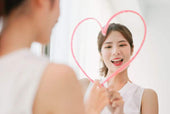
Discovering Self-Love Through Clean Beauty: A Guide to Nurturing Your Inner and Outer Self
In the journey of self-love, every action, thought, and choice we make towards ourselves can be a powerful affirmatio...
-

The Science Behind Organic Makeup and Pregnancy: A Gentle Choice for Moms-to-Be
wp:paragraph Pregnancy is a wonderful and exciting journey that comes with added responsibilities of ensuring the ...
-
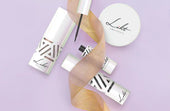
Liht Organics Black Friday: Enhance Your Beauty Routine with Vegan, Organic, and Natural Essentials!
As the holiday season approaches, there’s a sparkle in the air, and we at Liht Organics are thrilled to add a touch o...
-

Organic Makeup That Heals As It Conceals
Liht Organics Empowers Women With Only The Best For Their Beauty NeedsLiht Organics combines the best of both worlds:...
-
![[FEATURE] Liht Organics to debut at TFWA Asia Pacific show](//lihtorganics.com/cdn/shop/articles/1_1.png?v=1759328400&width=170)
[FEATURE] Liht Organics to debut at TFWA Asia Pacific show
‘Organic makeup that’s safe enough to eat’ — Liht Organics to debut at TFWA Asia Pacific show by Hannah Tan | 24 Apri...
-
![[FEATURE] The Singapore-based organic makeup brand is a first-time exhibitor at this year’s TFWA Asia Pacific Exhibition in Singapore in May 2025](//lihtorganics.com/cdn/shop/articles/2_1.png?v=1759328386&width=170)
[FEATURE] The Singapore-based organic makeup brand is a first-time exhibitor at this year’s TFWA Asia Pacific Exhibition in Singapore in May 2025
TFWA Asia Pacific preview: Liht Organics targets expansion in travel retail By DFNI Staff Writer The Singapore-bas...
-
![[FEATURE] Travel Retail Awards 2025 finalists - Best Make-up Product Color-Intense Liquid Lipstick – Liht Organics](//lihtorganics.com/cdn/shop/articles/4_e2f54f0f-fcd1-46e7-9990-fc9d29e35131.png?v=1759328382&width=170)
[FEATURE] Travel Retail Awards 2025 finalists - Best Make-up Product Color-Intense Liquid Lipstick – Liht Organics
Revealed: Travel Retail Awards 2025 finalists By Trbusiness Editor | Wednesday, 23 July 2025 15:21 TRBusiness is th...
-
![[FEATURE] Liht Organics targets expansion in travel retail](//lihtorganics.com/cdn/shop/articles/3_1.png?v=1759328346&width=170)
[FEATURE] Liht Organics targets expansion in travel retail
Organic makeup that’s safe enough to eat: Liht Organics targets expansion in travel retail By Laura Shirk Liht Organ...
-

[FEATURE] Gulf News: TikTok’s strawberry girl makeup trend: How to achieve that rosy glow inspired by Hailey Bieber
Berry, berry, strawberry, love strawberry, like BTS’s J-Hope, the band’s strawberry enthusiast once said. If only we ...
-

[FEATURE] Gulf Business Magazine : Liht-ing it up
Our founder, Nerissa Low was interviewed by Gulf Business, where she discussed her experience launching Liht, an orga...
-

[FEATURE] Daily Vanity: 11 local beauty brands owned by women – you’d be surprised how many of them started in their kitchens!
When we give a shout-out to homegrown beauty businesses, we aren’t just doing it for the sake of supporting local. Th...
-

[FEATURE] Entrepreneur ME : UAE-Based Liht Organics' Nerissa Low On Crafting An Organic Makeup Brand For The Skin-Conscious Consumer
As is the case with the origin stories of so many startups out there, Liht Organics came into being after its founder...
-
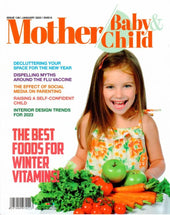
Mother, Baby & Child Editor’s Pick: Liht Organics Lights the Way
Excited to be the Mother, Baby & Child’s ‘Editors pick’ for their choice of Beauty brand.The article outlined the...
-
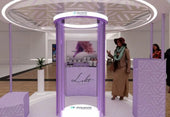
[FEATURE] EmiratesWoman - 8 Fabulous things to do in Dubai this weekend
by SARAH JOSEPHJANUARY 20, 2023Try the UAE’s first virtual reality makeup podium The popular VR-backed makeup exper...
-

Nerissa Low of Liht Organics On The Self-Care Routines & Practices Of Busy Entrepreneurs and Business Leaders
By Maria Angelova, CEO of Rebellious Intl.Date: 4 January, 2023Nerissa Low of Liht Organics On The Self-Care Routines...
-

Liht Organics: Meet the beauty brand that has caught the eye of the Royal Family of Bahrain
By Crystal Lee Digital Editor28 May 2021The world of clean beauty is, ironically, rather murky.That’s because the ter...
-

The latest luxury makeup and skincare drops, including serums, concealers, moisturisers and more
Allisa Noraini21 May, 2021It’s fine to splurge in the name of beauty. This new range of makeup and skincare drops are...
-

These SG Beauty Bosses Are Conquering The World Despite The Pandemic
First Singapore, then the US, China, Germany, Dubai, UK, South Korea, Malaysia, Hong Kong, Thailand, Australia… By...
-

Nerissa Low, Founder at Liht Organics
Written by Callum LaingPosted on December 26, 2020 10 min readNerissa Created Organic Makeup That Actually Improve...
-

Liht Organics – Makeup That Makes You
At Liht Organics, our mission is simple – to provide women (and men) with a safe experience when it comes to beauty s...
-

Why Should We Use Organic Makeup?
We cannot deny that cosmetics is one of our beauty essential item – it enhances our looks and conceals our flaws. Man...
-

Organic makeup and why your skin will love it: Liht Organics founder
By Jolene,July 27, 2020 |7 mins readOrganic make up in Singapore is a trend that is fast-catching on here as we becom...
-

[FEATURE] DC EDIT – Makeup & Confidence: Talking Self-love With Liht Organics’ Founder Nerissa Low
Makeup and confidence — the long, drawn-out fight that many of us have grappled with personally. I’m sure I’m not the...
-

[FEATURE] THE FEMALE CULTURE – I TRIED LIHT ORGANICS AND THIS IS HOW IT WENT
I’m a huge fan of makeup and I love testing out new products so I was pretty excited to get my hands on Liht Organics...
-

[FEATURE] SINGAPORE MOTHERHOOD – The Best Organic and Natural Skincare and Makeup for Pregnant and Breastfeeding Mums in Singapore
Pregnancy is a hormone-volatile period for women. One place where this makes itself seen and felt is on the skin. Som...
-

[FEATURE] AFTER CLINIC HOURS – 21 Back to Beauty Deals in Singapore (2020)
With spas and salons shuttered island wide for two months, I never thought I’d be this desperate for a good old’ Swed...
-

[FEATURE] KUL AL USRA MAGAZINE JUNE 2020
Choosing Pinks & Oranges this summer!Featured: Moisture Burst Lip Glaze in Pink Cupcake.
-
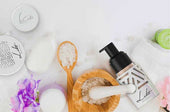
[FEATURE] Award-winning Organic Makeup Brand Liht Organics Gives Back to the Community & Environment During COVID-19
Singapore’s First Organic Makeup Brand with 100% Natural Makeup That Is Safe Enough to Eat Liht Organics promises org...
-

[FEATURE] COSMETICS DESIGN ASIA – COVID-19 ‘WAKE-UP CALL’: SINGAPORE’S LIHT ORGANICS SEES GLOBAL POTENTIAL AMID CLEAN BEAUTY CLAMOUR
Original article at: https://www.cosmeticsdesign-asia.com/Article/2020/06/26/Singapore-s-Liht-Organics-sees-globa...
-

[FEATURE] THE LIFESTYLE COLLECTIVE – BEAUTY SHOULD NEVER BE CRUEL
Date: June 24, 2020Author: Kristen Chen Liht (pronounced as light) Organics is a Singaporean organic makeup brand t...
-

[FEATURE] NÜYOU – 7 ONLINE PLATFORMS TO SHOP FOR CLEAN BEAUTY PRODUCTS
纯净美容(Clean Beauty)的美肤概念,再近几年来越来越受欢迎。随着消费者“爱自己”的美容意识逐步提升,对于用在脸上的所有物品、成分更为关注和讲究。以广义来讲,纯净美容主张使用“干净”成分和无毒配方,让肌肤的可能性损伤减到最小...
-

[FEATURE] COSMOPOLITAN MIDDLE EAST – 3 BENEFITS OF SWITCHING TO ORGANIC BEAUTY PRODUCTS THIS RAMADAN
By Cosmo – May 08, 2020Nerissa Low, founder of Liht Organics, shares the ultimate benefits of going organic this mont...
-

Nerissa Low of Liht Organics: “Seeing Light at the End of the Tunnel; 5 Reasons To Be Hopeful During this Corona Crisis”
Ely Weinschneider, Psy.D.May 8 · 9 min read …It shows us that everyone- whether we are rich or poor, regardless...
-

[FEATURE] AL MARA MAGAZINE APRIL 2020
-

[FEATURE] RetailME April 2020 – Liht Organics Stays Firm On Strengthening GCC Presence
-

[FEATURE] EMARAT AL YOUM NEWSPAPER – 27 MARCH 2020
English Translation:In spring and summer days, women love to have very light makeup in terms of color and texture, ...
-

[ARTICLE] WKND Magazine March 2020 – Know Your Organic Makeup
-

[FEATURE] AVIAMOST DUBAI – March/April 2020
English Translation:Lipstick with organic flowers. Thanks to the rich complex of natural ingredients, the lipstick...
-

[FEATURE] RUSSIAN EMIRATES (MAR/APR ISSUE)
Russian Emirates is a luxury lifestyle and fashion magazine covering information about the UAE, fashion, beauty, j...
-

[FEATURE] – KUL AL USRA MAGAZINE MARCH 2020
GET THE LOOK!
-

[FEATURE] IMAGES Retail ME – Liht Organics Announces GCC-Wide Expansion
Rupkatha Bhowmick Mar 10, 2020 The plan is to reach 75 Liht Organics retail touchpoints by June-July 2020 and touch...
-

[FEATURE] BABY & CHILD SPRING 2020 – NATURAL BEAUTIES
-

[FEATURE] AWQAT DUBAI – Liht Organics: The First Premium Organic Makeup Brand
ENGLISH TRANSLATION:Liht Organics – The First Premium Organic Makeup Brand Liht Organics, a premium organic beauty ...
-

[FEATURE] FRIDAY MAGAZINE – THE RETRO EYELINER LOOK
-

[FEATURE] MOTHER BABY & CHILD – VANITY ESSENTIALS – THE BEAUTY EDIT
-

[FEATURE] Masala! Magazine February/March 2020 Issue – Beauty Debut: Liht Organics
-

[Feature] – TimeOut Singapore – The Best Local Beauty and Skincare Brands In Singapore
For full article, click here.
-

[FEATURE] KUL AL USRA MAGAZINE – LIHT UP YOUR WORLD WITH LIHT ORGANICS
[ENGLISH TRANSLATION]Liht Up Your World With Liht OrganicsThe First Premium Organic Makeup Brand To Debut In The Mi...
-

[FEATURE] SINGAPORE TATLER – 9 Local Beauty Brands You Should Know Of
-

[FEATURE] nüyou August 2019 Issue – 15 Faces To Watch
-

[FEATURE] HONEYCOMBERS – Local Beauty Gurus: Singapore Beauty Brands You Need To Know About
-

[FEATURE] The Wellness Insider – Seeing The Liht With Founder Nerissa Low
-

[FEATURE] 联合早报 (LianHeZaoBao) – Women Entrepreneur Awards 2019 Coverage
-

[FEATURE] THE STRAITS TIMES Life – Clean beauty with a Singapore heart
-

Romantic Organic Makeup Looks for Valentine's Day: Tips, Tricks, and Product Picks
Valentine's Day is the perfect occasion to embrace the beauty of organic makeup. At Liht Organics, we believe in the ...
-
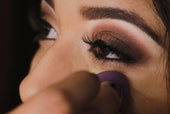
Enhance Your Eyes: A Guide to Eyeliner for Every Eye Shape with Liht Organics
Welcome to the Liht Organics blog, where we believe in celebrating the natural beauty of every eye shape. Today, we'r...
-
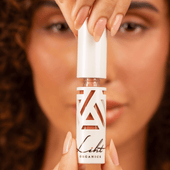
How to do makeup with only lipstick?
At Liht Organics, we believe in the power of clean beauty and the artistry of makeup. Makeup is more than just enhanc...
-

How to Clean Your Makeup Brushes in 6 Simple Steps
Cleaning your makeup brushes may seem like a tedious task, but it's an essential part of your beauty routine. Not onl...
-

Makeup Tips to Help You Look Your Most Flattering on Virtual Meetings!
After more than 2 years of work-from-home arrangement, and possibly hundreds of zoom calls and Google meet virtual me...
-
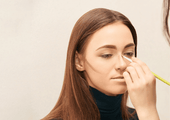
Learn How to Contour with This Simple Guide for Beginners
Want to take your makeup to the next level? Try contouring to achieve a more defined or sculpted look à la the Kardas...
-
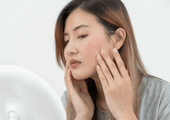
Essential and Easy Makeup Tips for Sensitive Skin
Living with sensitive skin conditions like eczema, psoriasis, and more is already not an easy feat. Throw in makeup t...
-
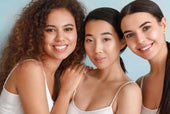
Raising Your Vibration: A Liht Organics Guide for Empowerment This International Women's Day
wp:paragraph As International Women's Day (IWD) approaches, it serves as a powerful reminder of the journey towards s...
-

The Beauty of Going Bare: Why Sleeping with Makeup is a No-No
Have you ever had one of those nights where you're too tired to clean off your makeup? You might believe, "Skipping...
-

Breast Cancer Awareness: Empower Your Beauty with Liht Organics Makeup
During October, we observe Breast Cancer Awareness Month as a way to unite and bring attention to breast cancer whil...
-

The Hidden Dangers of Carmine in Makeup Colorants: Embracing Healthier and Vegan Options
Makeup has become an integral part of our daily routines, allowing us to express our unique beauty. However, as we pr...
-

How can I ensure that my makeup products are organic and won't harm my skin?
When it comes to makeup, it’s important to be mindful of what you’re putting on your skin. With so many products on t...
-
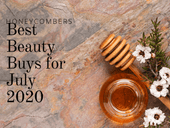
[FEATURE] HONEYCOMBERS – BEST BEAUTY BUYS IN JULY
by Nicole NithiyahWhat’s hot in our beauty hit list: Honest thoughts and top beauty stories we’re swooning over. As w...
-

Liht Organics Introduces Exclusive Gift Sets: Enhance Your Beauty This Festive Season!
As the holiday season approaches and the year draws to a close, Liht Organics is thrilled to present two enchanting g...
-

Get Spooktacular with the Best Halloween Makeup Ideas using Liht Organics' All-Natural, Vegan, and Cruelty-Free Cosmetics!
With Halloween just around the corner, it’s time to let your creativity shine and transform yourself into a spooky,...
-

Celebrating World Animal Day with Liht Organics: Embracing Natural Cruelty-Free Makeup
wp:paragraph As we observe World Animal Day, the team at Liht Organics takes great pride in honoring our pledge to...
-
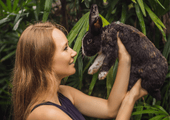
Reasons Why You Should Choose Cruelty-Free Cosmetics Instead!
With increasing exposés unveiling the ugly truth behind animal testing that goes on in the beauty industry, it is lit...
-
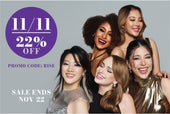
Celebrate Singles Day with Makeup That Empowers – 22% Off at LIHT Organics!
This Singles Day, treat yourself to beauty that goes beyond skin-deep. At LIHT Organics, we believe makeup is about s...
-

Preparing for the Cozy Beauty of Autumn: A Preview of Your Fall Look
As we bid farewell to the warm, sun-kissed days of summer, it’s never too early to start dreaming about the enchantin...
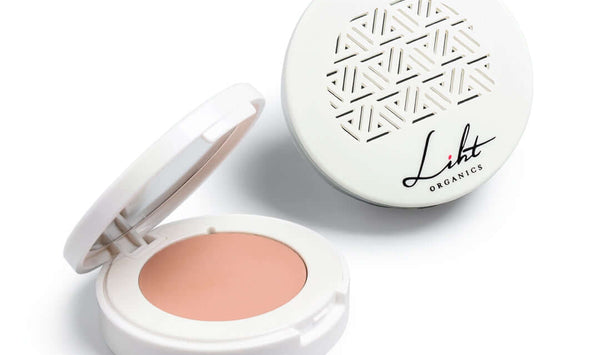
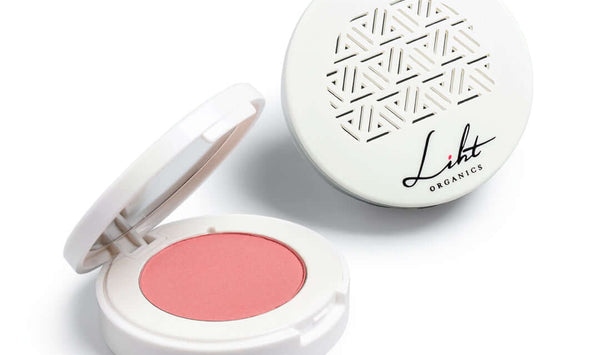
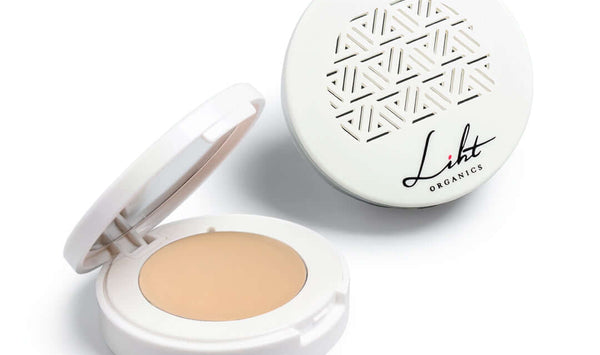
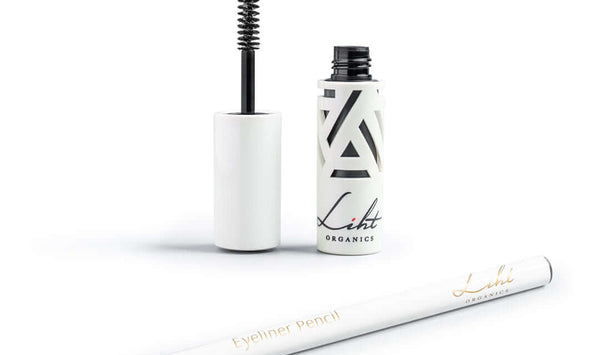
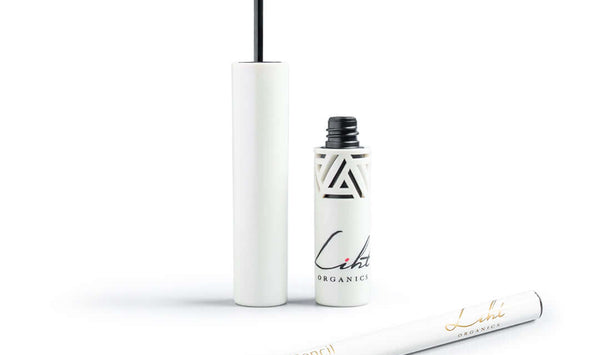
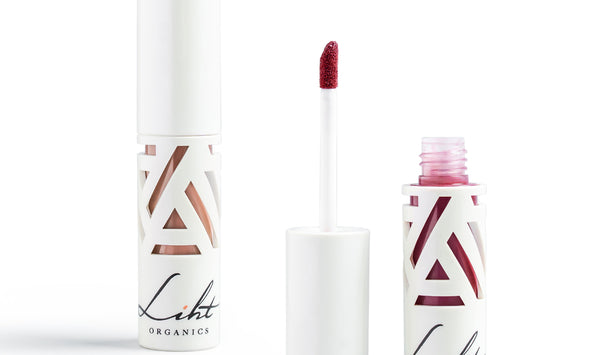
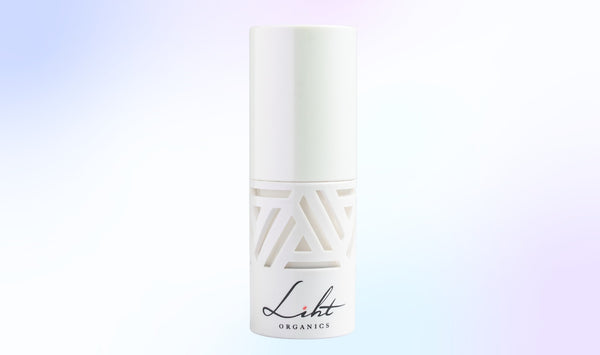

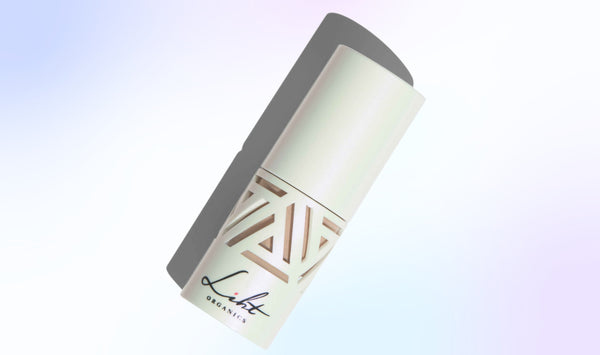
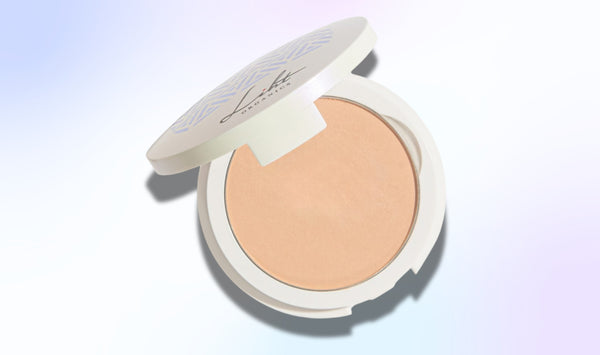
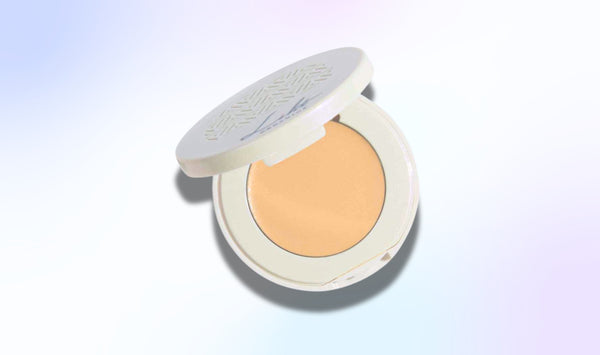
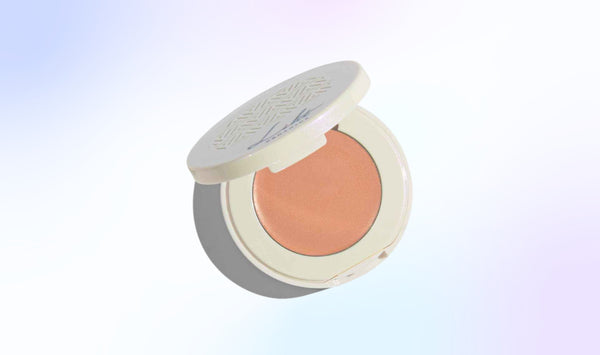
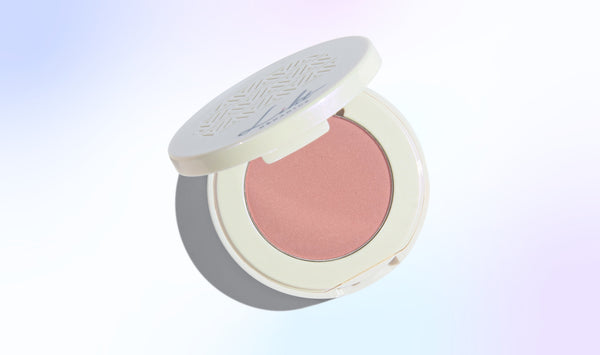
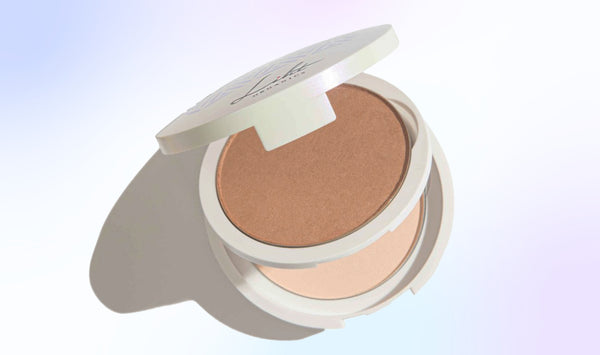
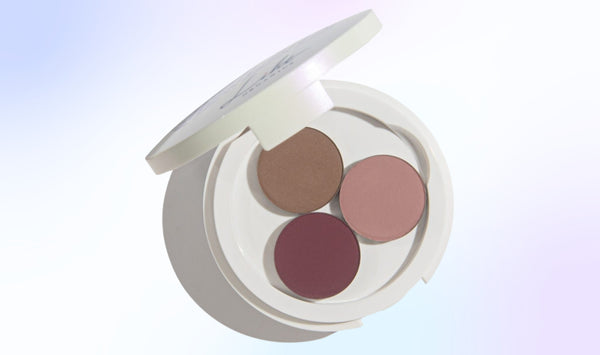
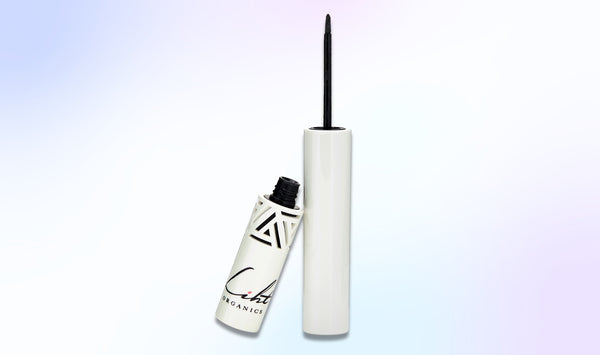
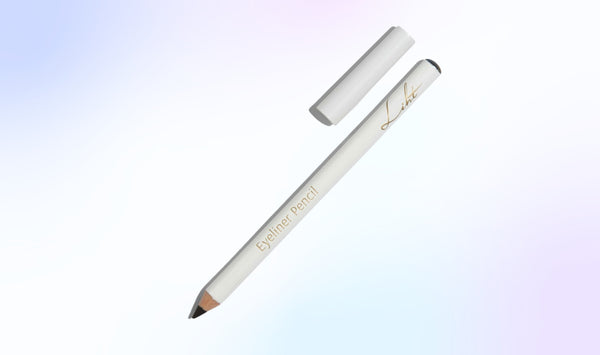
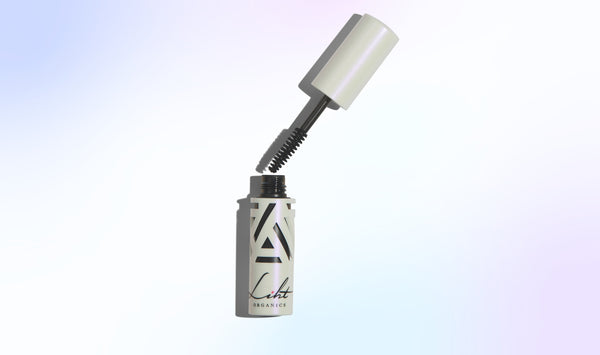
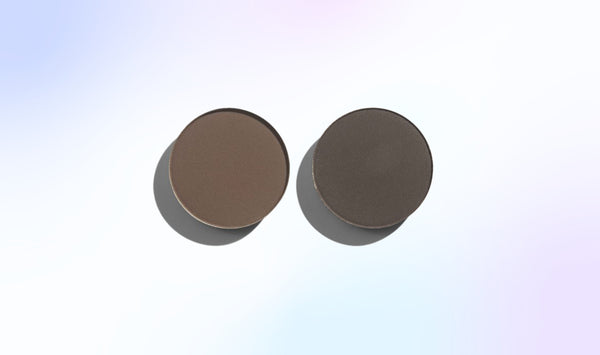
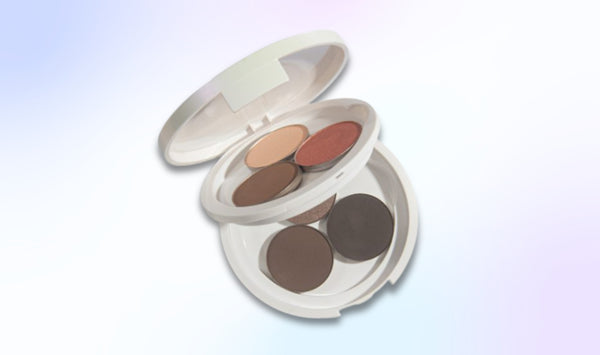
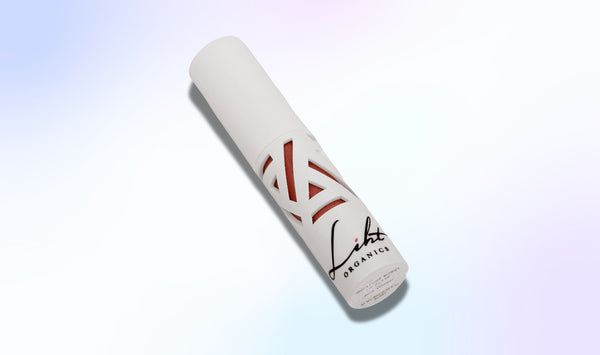
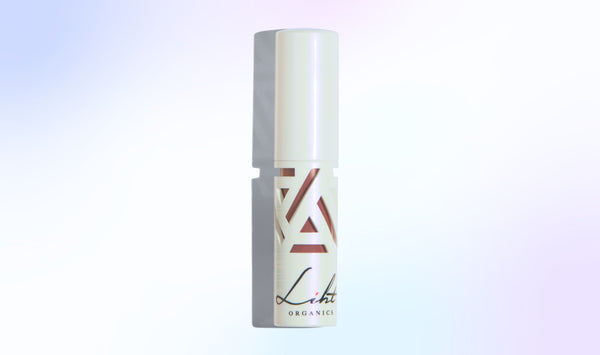
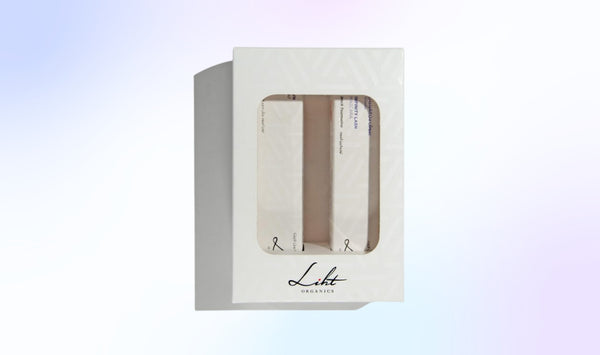
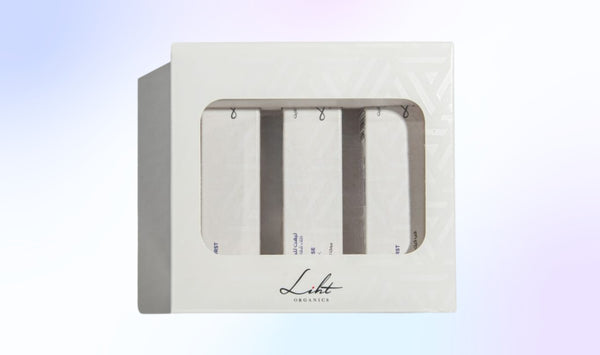


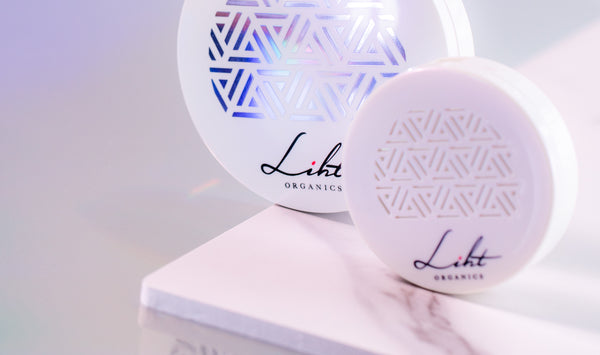
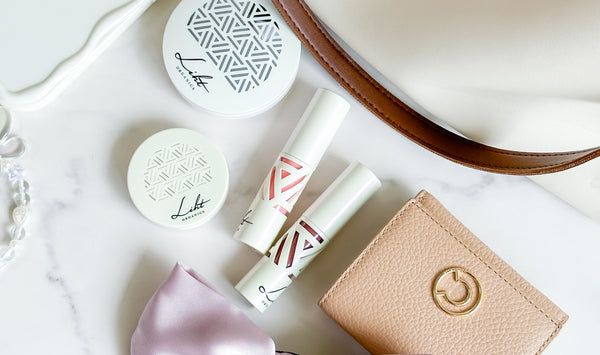
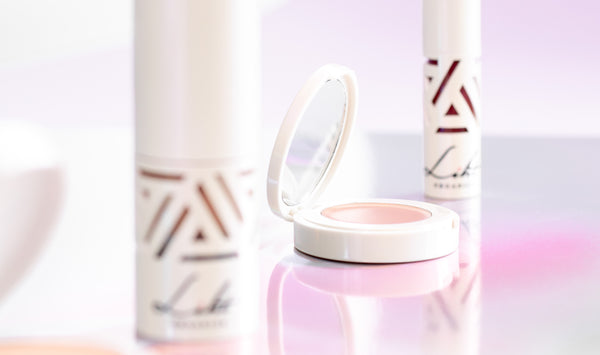




![[FEATURE] Liht Organics to debut at TFWA Asia Pacific show](http://lihtorganics.com/cdn/shop/articles/1_1.png?v=1759328400&width=170)
![[FEATURE] The Singapore-based organic makeup brand is a first-time exhibitor at this year’s TFWA Asia Pacific Exhibition in Singapore in May 2025](http://lihtorganics.com/cdn/shop/articles/2_1.png?v=1759328386&width=170)
![[FEATURE] Travel Retail Awards 2025 finalists - Best Make-up Product Color-Intense Liquid Lipstick – Liht Organics](http://lihtorganics.com/cdn/shop/articles/4_e2f54f0f-fcd1-46e7-9990-fc9d29e35131.png?v=1759328382&width=170)
![[FEATURE] Liht Organics targets expansion in travel retail](http://lihtorganics.com/cdn/shop/articles/3_1.png?v=1759328346&width=170)
































































